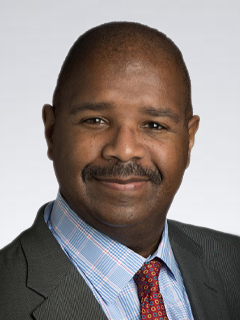An asset owner view on shareholder engagement
Q&A with Yumi Narita, Executive Director of Corporate Governance at the New York City Office of the Comptroller

Q&A with Yumi Narita, NYC Office of the Comptroller
In late May, Yumi Narita, Executive Director of Corporate Governance at the New York City Office of the Comptroller, spoke with Stephen Brown, Senior Advisor, KPMG Board Leadership Center, to offer insight into how the $266 billion New York City pension funds evaluate proxies, engage with directors, and establish their positions. At the end of April, the five New York City pension funds held over $112 billion in public equities.
This conversation was recorded as part of Women Corporate Directors WCDirect programming on May 22, 2024. The following transcript has been edited for length and clarity. A full video replay of the conversation is available here.
Stephen Brown: What is unique or most interesting about the engagement approach taken by New York City?
Yumi Narita: Compared to large asset managers, asset owners like New York City hold a much smaller portion of every company. So, what is our lever and how do we engage companies is really important. For us, we believe in shareholder proposals. It’s not enough to write a letter to the CEO about our concerns.
We generally go to the board of our five pension funds to ask them for approval on initiatives coming up during the next proxy season; they will select the ones they like and then we file shareholder proposals as a first engagement step. The reason for this is around timing. If an Annual General Meeting is in May and filing for the proxy is in the fall of the prior year, we don’t have time to send a letter and wait for a response. We’re also known to withdraw our proposals as soon as there’s a compromise. We’re not another investor who just wants to be in the proxy statement. We just want that disclosure to happen.
SB: Given your prior stewardship experience at both very large passive and active asset managers, how are other institutional investors different from the way New York City operates?
YN: For passive asset managers, engagement, particularly with directors, is incredibly important as a touch point. Even if there were governance or disclosure concerns, it was generally a long road before there was a vote against a director. Rarely are they supporting shareholder proposals.
On the other hand, when I was working for an active asset manager, we’d get more contributions from the portfolio managers on how to vote certain proxies and they would want to engage the company in more conversations about ordinary business, which flies in the face of most safe investor engagement practices. An active manager can also sell the stock.
SB: What are the big issues you are facing as a shareholder this year?
YN: We have a constant set of initiatives which are more governance-focused, such as looking at individualized board matrices and disclosure of race, ethnicity, and gender, as well as director skill sets that relate to the company individually. We’ve gotten pushback from companies in the past, but it’s becoming more common. We also have a long-standing push for EEO-1 disclosures and ensuring that the report is shared with investors.1
It’s worth noting that the comptroller is an elected representative of New York City. This administration is very interested in climate. We have more client scientists staffed to the Office. We look at global Climate Action 100+ target companies when it comes to disclosures around Scope 1, 2, and 3 emissions, and vote against some directors if we believe there’s not robust climate risk oversight.
A rising concern also relates to disclosure of responsible artificial intelligence (AI) policies. This came up in the Hollywood writers and actors strike. Are there responsible and ethical guidelines around the use of AI? Having clear board oversight policies around AI was key. There’s data and privacy concerns as well, but New York City is always fighting for workers. We’re looking at freedom of association policies or how employees are monitored. Are you using technology to track assets or people? What are the unintended consequences which erode trust between companies and employees?
Control and monitoring can have a very negative effect on people.
SB: Speaking of monitoring, what has surprised you or continues to surprise you in interactions with companies and directors?
YN: For some directors, there’s a notion that this is going to be your last job and you will stay on the board until retirement age. But from an investor perspective, the market is shifting quickly, and companies are becoming global. There always has to be an understanding of, “Are you the right person to be in that boardroom?” I think that's a tough position for directors.
Make sure the boardroom is full of productive people. Work to remove those who are not effective. We also have to get rid of the stigma of leaving the board. I spoke to a director who was part of a turnaround strategy. She was ready to leave because the turnaround was complete, but her tenure was only three years. She didn’t want it to seem like she left the board due to behavior or poor performance or some other reason.
SB: Do you think board members should make investor meetings part of their annual governance duties?
YN: Yes. Boards generally sit with company executives and the higher ups, and maybe some of the workers at the company. But that’s a whole different flavor than talking with an investor. I’m trying to understand from our 25-minute conversation how much of a questioner you might be; how much will you raise your hand; how much will you push against groupthink? A board is made up of individuals who have different skill sets. Ultimately, I think that the most important question is can you push back? Can you ask a tough question at the right time? That is critical. If you're not ready for that, you should not meet with investors. They will eviscerate you.
The views and opinions expressed herein are those of the interviewee and do not necessarily represent the views and opinions of KPMG LLP.
Footnotes
1The EEO-1 Component 1 report is a mandatory annual data collection that requires all private sector employers with 100 or more employees, and federal contractors with 50 or more employees meeting certain criteria, to submit workforce demographic data, including data by job category and sex and race or ethnicity, to the EEOC. (From the U.S. Equal Employment Opportunity Commission.)
Meet the speakers

